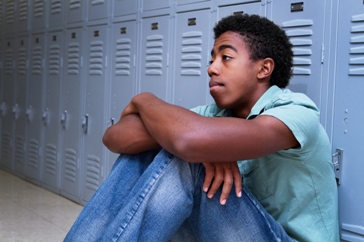Abuse defined
Federal legislation provides guidance to States by identifying a minimum set of acts or behaviors that define child abuse and neglect. The Federal Child Abuse Prevention and Treatment Act (CAPTA) (42 U.S.C.A. § 5106g), as amended by the CAPTA Reauthorization Act of 2010, defines child abuse and neglect as, at minimum:
"Any recent act or failure to act on the part of a parent or caretaker which results in death, serious physical or emotional harm, sexual abuse or exploitation"; or
"An act or failure to act which presents an imminent risk of serious harm."
Child abuse in sports can arise in a number of different contexts: emotional abuse, physical abuse, sexual abuse, or neglect.

Emotional Abuse
- Is a verbal attack on a child's self esteem by a person in a position of power, authority, or trust such as a parent or coach
- Occurs even if the attack is intended as a form of discipline or is not intended by the adult to cause harm
- Takes many forms, including any of the following:
- Name calling ("Hey, Fatty!" or "Hey, Shorty" or "Hey, Mr. Klutz")
- Threatening ("If you don't win, you can forget about me buying that new CD you want")
- Insulting ("You're stupid" or "You're clumsy" or "You're an embarrassment to our family" or "You don't deserve to wear that uniform.")
- Bullying or taunting by a teammate.
- Criticizing or ridiculing ("You are a loser" or "I thought you were better than that. I guess I was wrong.")
- Intimidating ("Watch out kid, my son is going to break your nose")
- Yelling at a child for losing or not playing up to the adult's expectations
- Hazing
- Negative questioning ("Why didn't you win?" or "How could you let that guy beat you?")
- Shunning or withholding love or affection (not speaking to, hugging, or comforting your child after she plays poorly in a game or practice, or her team loses; showing obvious signs of disappointment)
- Punishing a child for not playing up to your expectations or when her team loses.
Physical Abuse
- Occurs when a person in a position of power, authority or trust such as a parent or coach purposefully injures or threatens to injure a child
- Takes many forms, including any of the following:
- Slapping
- Hitting
- Shaking
- Throwing equipment
- Kicking
- Pulling hair
- Pulling ears
- Striking
- Shoving
- Grabbing
- Hazing
- Punishing "poor" play or rules violations through the use of excessive exercise (extra laps etc.)1 or by denying fluids.
Sexual Abuse
- Occurs when a person in a position of power, authority or trust engages in "sexualized" touching or sex with a child
- "Sexualized
touching" is where touching, instead of being respectful and nurturing,
is done in a sexual manner. Examples include:
- Fondling instead of a hug
- Long kiss on the lips instead of a peck on the cheek
- Seductive stroking of any area of the child's body instead of a simple pat on the rear-end for a good play.
What Is Harassment?
Your child is being harassed when she or he is threatened, intimidated, taunted, or subjected to racial, homophobic, or sexist slurs. Sexual harassment includes comments, contact or behavior of a sexual nature that is offensive, uninvited or unwelcome. For more articles on sexual abuse in sports, click here.
Neglect
Neglect is a chronic inattention to the basic necessities of life such as supervision, medical and dental care, adequate rest, safe environment, exercise, and fresh air.
Neglect in a sports setting make take the following forms:
- Injuries are not properly treated
- Athletes are forced to play hurt
- Equipment is inadequate, poorly maintained or unsafe
- Road trips are not properly supervised
- Allowing bullying by teammates.
1. Gershoff, E.T. (2008). Report on Physical Punishment in the United States: What Research Tells Us About Its Effects on Children. Columbus, OH: Center for Effective Discipline ("compelling a child to engage in excessive exercise or physical exertion" is physical punishment).








